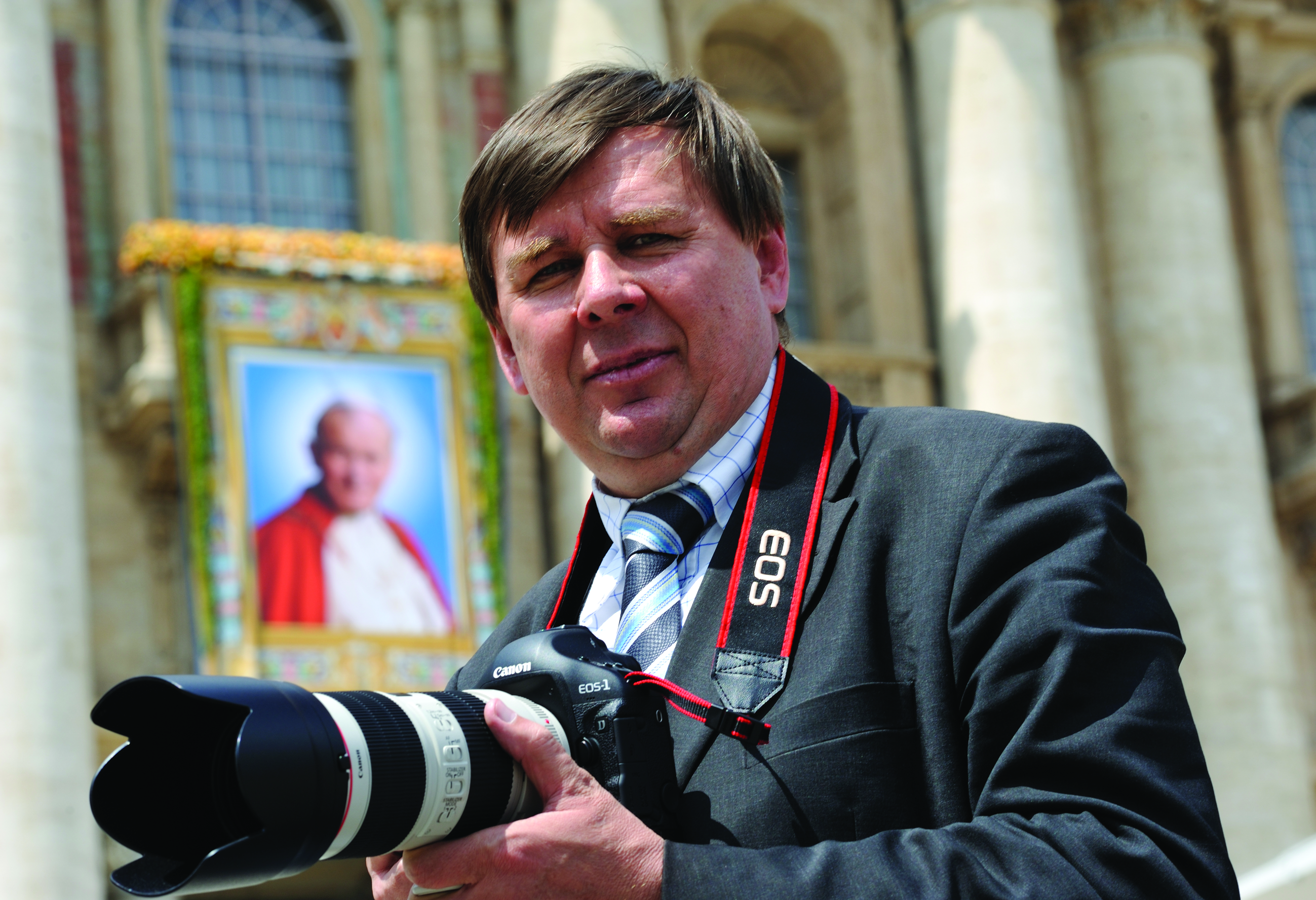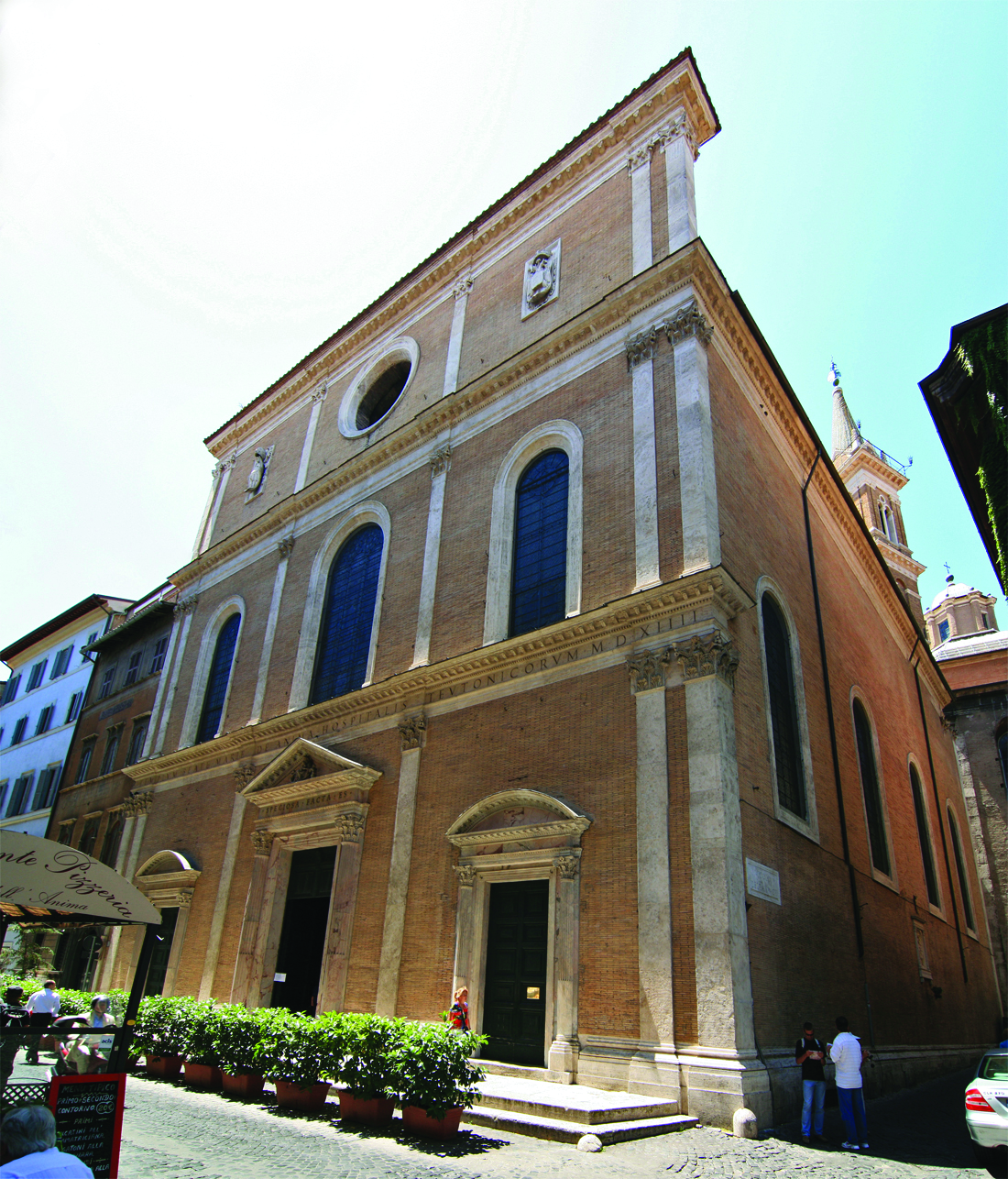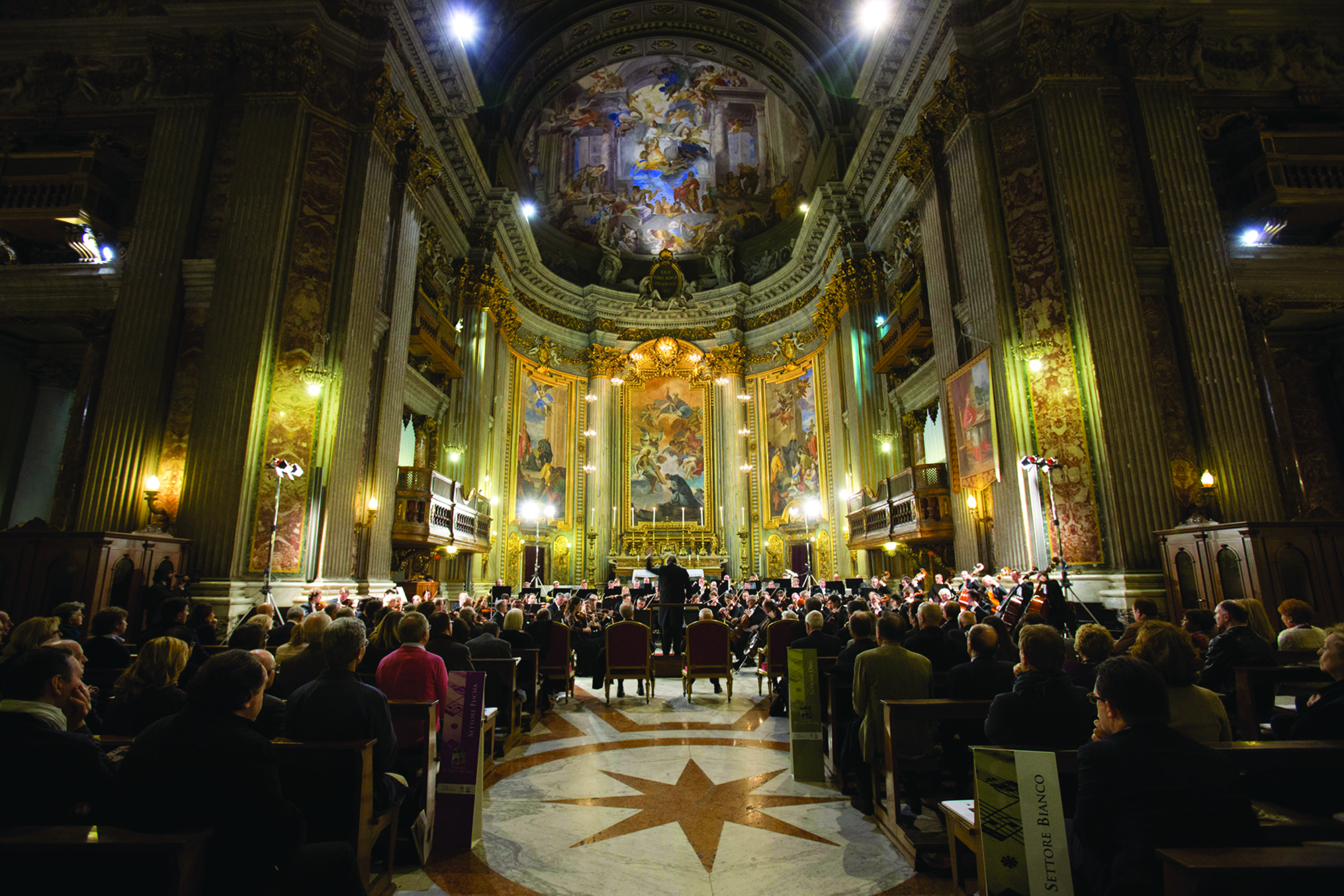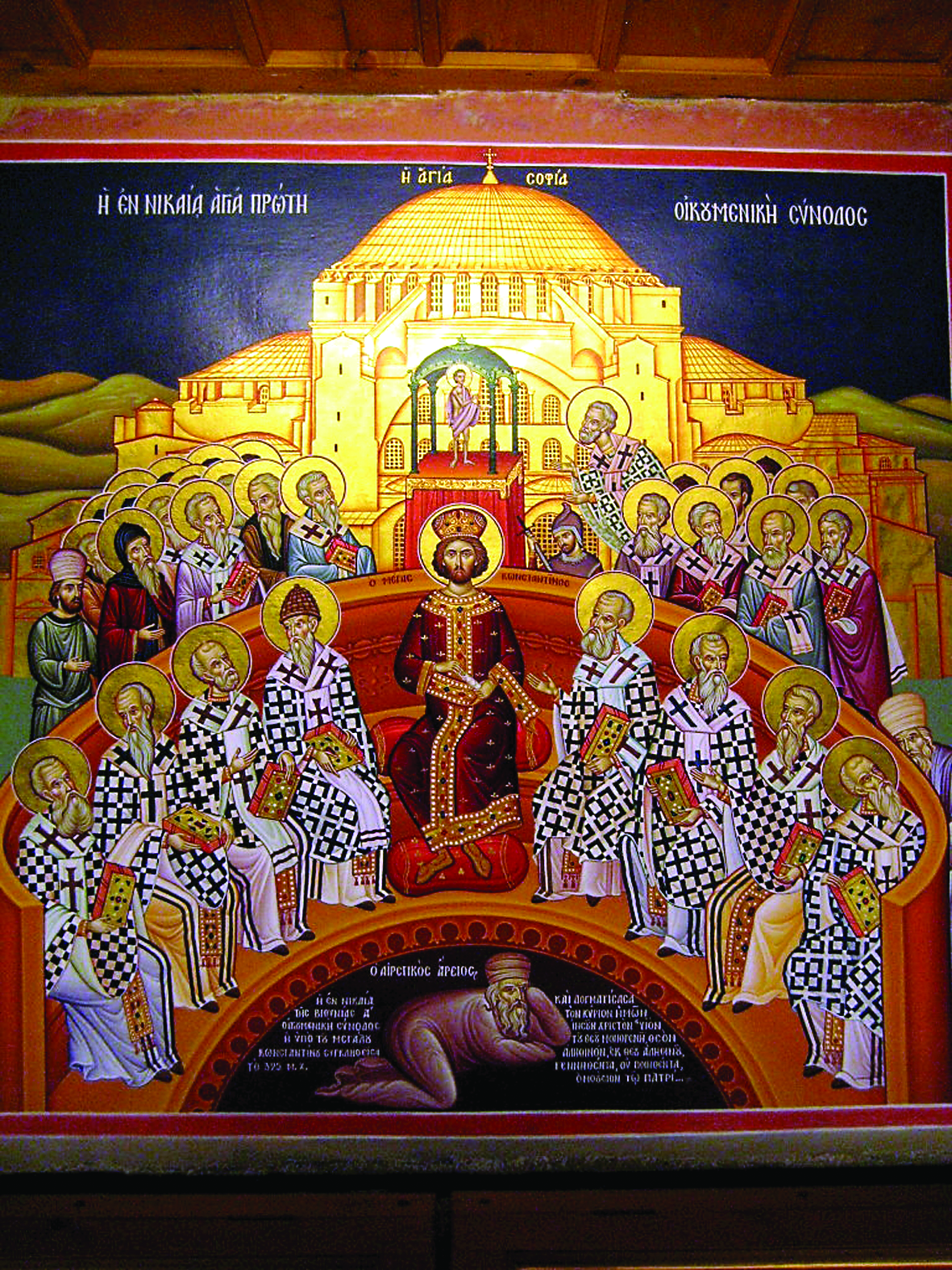By Luca Caruso
How can God be brought into the context of the city? This is the question at the heart of Argentinian writer Carlos Maria Galli’s new third edition of his book, God Lives in the City, published by the Vatican Publishing House and presented in Rome on March 3, at the Church of St. Bartholomew on the Tiber Island, in the center of Rome.
The first two editions were published in 2011 and 2012; this third edition has been placed in the context of “the missionary impulse of the new Bishop of Rome.”
God Lives in the City offers a reflection on pastoral care in an urban setting, on how the Church can exist and operate in the global city. The title, Galli explains, “was taken from an affirmation in the document of Aparecida, the 2007 Latin American Bishops’ Conference.” He goes on to say that “this text discusses the subject of evangelization in cities, especially those with a population of more than 100,000. Above all, it considers the so-called megalopoli, creations of modernity, especially in the 20th century.”
Vatican Radio’s Luca Collodi interviewed the author:
Carlos Maria Galli: The book God Lives in the City is a study that was more than 25 years in the making. I live in the city of Buenos Aires, which is surrounded by densely-populated outskirts. In total there are more than 13 million of us living there.
Buenos Aires is the eighth most populous urban area in the world. But Argentina is not an isolated case. Some say that Latin America, with more than 570 million people, is the most urbanized region in the world.
In Europe, for example, 70% of the total population is urban, but in Latin America even more, 80%, live in urban areas. This means that, in our region, most of the people live in the newer, suburban neighborhoods, often very poor ones.
The Church in Latin America has been going through a process of in-depth reflection, initially on the phenomenon of urbanization, and then on urban culture, and finally on urban inculturation, preaching the Gospel in these environments: this process had already begun in 1965, the year Gaudium et Spes was published. In the document from Aparecida, these reflections developed new pastoral approaches for urban areas. This is the origin, and reason behind, my book.
Is there room today for the Church’s presence in these enormous cities?

How should a Christian look upon local institutions and civic life?
In the city, the Church needs to find new ways of opening up, because the modern city is a multicultural place. Urban pastoral challenges — in my opinion — imply facing the city in its totality: this means, above all, getting near it, and not analyzing city life from outside, but rather from inside, with sympathy, closeness and compassion. But at the same time, we are in need of pastoral conversion, to allow us to discover the paths God wants to send His Church down, within this new reality.

BENEDICT XVI Servant of God and of Men
Vatican Publishing House 2015,
Pages 170, Price: €26.00
(If you are an English-language publisher and would like to co-publish this book in English, please contact us)
The Vatican Press has published an anthology of reflections on the life and work of Emeritus Pope Benedict XVI on the tenth anniversary of his election to the papacy in 2005. The book has come out in two languages, German and Italian, as a collaborative project between the Vatican Press and the Schnell & Steiner Publishing House in Regensburg, Germany. The project owes much to Archbishop Georg Gänswein, the Emeritus Pope’s personal secretary. Entitled Benedict XVI: Servant of God and Men, the book was presented at the Vatican on April 20 in the Campo Santo Teutonico.
It contains a number of different texts composed by the Emeritus Pope’s friends and associates, from German Cardinal Gerhard Müller, in charge of editing the Opera Omnia (the complete works) of Joseph Ratzinger and the founder, in 2008, of the Institute of Pope Benedict XVI.
Another voice is that of Father Stephan Horn, the driving force behind the Schülerkreis (“student circle,” the study group of Ratzinger’s former students); in the book he deals with Benedict’s Wednesday catechesis on the Fathers of the Church.
A new library will also be established dedicated to works by and about the Emeritus Pope, it was announced at the presentation.
The Biblioteca Romana Joseph Ratzinger – Benedetto XVI, dedicated to the life and thought of Joseph Ratzinger as a scholar and a Pope, will be established within the Library of the Teutonic College and the Roman Institute of the Society of Görres, in Vatican City. Msgr. Stefan Heid, director of the Roman Institute, made the announcement.
Present on April 20, in the afternoon, in the church of the Campo Santo Teutonico, in Vatican City, were, among others, Msgr. Georg Ratzinger, brother of the Pope Emeritus; Cardinals Bertone, Farina, Koch and Müller; Archbishops Farhat, Gänswein, Marra and Pozzo; and the Federal Republic of Germany’s ambassador to the Holy See, Annette Schavan.
The Library dedicated to the Pope Emeritus will be ready in September and it will have about 1,000 books in different languages; it will be open to people who are interested in publications about Joseph Ratzinger and written by Joseph Ratzinger, in his life and his theology. Most of the books were donated by Benedict XVI, others by the Vatican Foundation that has the same name and has supported the initiative.
Msgr. Giuseppe Antonio Scotti, president of the Ratzinger Foundation, said that “Ratzinger was able to understand the complexity of our time and helped us to face this difficult situation.”
Father Giuseppe Costa, director of the Vatican Press, thanked the Pope Emeritus for “the great gift he left us through his publications and his theological research.” He also noted that “Ratzinger gave great prestige to our publishing house.”
Christian Schaller, vice director of the Institut Papst Benedikt XVI of Regensburg (and awarded the Ratzinger Prize in 2013), presented the book. He defined it as a “tour d’horizon of the eight years of the universal pastoral mission of Benedict XVI” and as “an invitation to be closer to the heritage of this important pontificate, to share his teachings and to reflect.”
Many authors contributed to this work: Father Stephan Otto Horn, Cardinals Cordes, Koch, Marx, Meisner, Müller, and many others. The book offers a portrait of Ratzinger’s life and works through words and images, various themes faced during the pontificate and many pictures.
“People wanted to see Benedict XVI, but above all they needed to listen to him,” said Archbishop Gänswein — Prefect of the Pontifical Household and personal secretary of Pope Ratzinger — in the preface of the book.
“When I try to identify myself with the Pope Emeritus, I see that he has never concentrated attention on his own life, but he has always been a messenger of faith,” Schaller said. “He helped people to be closer to Christ with great care and sensitivity. This could happen only if we were ready to turn away from ourselves and to concentrate on our actions.” The themes of the book are the following: the trilogy about Jesus of Nazareth, the relationship between faith and reason, the friendship with John Paul II, the encyclicals, the Second Vatican Council, the apostolic journeys, the priesthood and the identity of the priest.

Presentation of Benedict XVI, a book commemorating the tenth anniversary of the election of Pope Benedict XVI on April 19, 2005.
In the photo, from left to right, Benedict’s personal secretary, Archbishop Georg Gaenswein; German Cardinal Gerhard Mueller; the retired Pope’s 91-year-old brother, Msgr. Georg Ratzinger; Albrecht Weilard, director of the Schnell & Steiner publishing company of Regensburg (publisher of the German edition); Father Giuseppe Costa, director of the Vatican Press; Christian Schaller, vice director of the Institut Papst Benedikt XVI of Regensburg; and Msgr. Giuseppe Antonio Scotti, president of the Ratzinger Foundation
(Siciliani/Gennari photo)







Facebook Comments